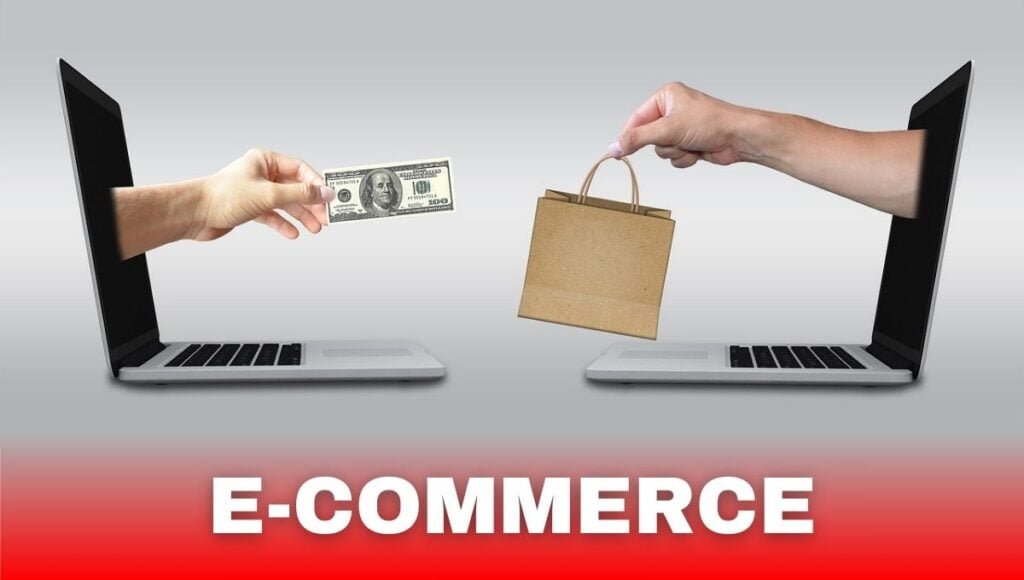E-commerce business in India is growing at a growth rate of 51% every year and by 2040, 95% of the businesses will be online. The e-commerce industry is growing rapidly in India. It is expected that the Indian e-commerce industry will be worth US$300 billion by 2030 and third-party logistics will manage more than 17 billion shipments in the coming 7 years.
India’s e-commerce industry is very wide and growing very fast because of advancements in technology and the consumer base is getting larger day by day. With the advent of the digital era, everything has become online. Looking at this opportunity, if you are also wondering how to start an e-commerce business in India, then you have come to the right place. Know some important points that will help start and grow an e-commerce business.
Types of Products
- PHYSICAL PRODUCTS
- Garments
- Utensils
- Crockery
- Furniture, etc.
- DIGITAL PRODUCTS
- Courses
- E-Book
- Software, etc.
How To Start an E-Commerce Business in India :
1) Identify Your Niche
Selecting a niche is an important task. A product with low supply and high demand can be profitable. Because in that type of product, sellers are limited but consumer demand is high. Your business model rests on the niche only. If there is high competition in a product then it can be difficult for new entrepreneurs to rank in that niche because they have already established their position in such a niche.
Some Factors to Decide Niche:-
- Identify your target audience.
- Prepare a list of potential niches with high demand but limited competition.
- Eliminate the niche, having major top players.
- Conduct market research such as competitor analysis, surveys etc.
2) Business Plan Outline

After deciding a niche, it is time to create a business outline such as setting a business strategy, goals, and objectives. By not creating a business outline, the chances of business failure are high. Therefore, market analysis business model and strategy have to be decided in the best way so that we can attract customers and upscale the business.
3) Registration

Four methods are available for registration:
- Sole Proprietorship
- Partnership Registration
- Private Limited Company
- Limited Liability Partnership
If you are starting alone then you can start with Sole Proprietor. A sole proprietor does not require many documents or formalities. Along with growth, if someone wants to take a stake in your business, they apply for partnership registration and if investors want to get involved in your business, they apply as a private limited company. GST registration is not required at the beginning of an e-commerce business, but if the sales exceed Rs 20 lakh then it is necessary to obtain a GST certificate. There are very few certificates required for digital products like e-books, courses etc. In the case of food/medical products, then it is required to obtain a certificate and license.
4) Build Your Online Store
Building an online store is the most important part of an E-commerce business. Online stores are useful for customers to get the products of their choice. All your products are displayed on the online store and their payment gateway and tracking reports are available. Many people find it difficult to create a customized website but it is very easy as it only requires hosting and domain.
Hosting means where all your data will be stored and the domain is your web address with the help of which customers access the website. Before buying a domain and hosting, it has to be checked that it is reliable and trustworthy. If your domain/hosting provider’s customer support isn’t trustworthy and reliable, then all your efforts will be in vain. If you don’t want to build a customized website, then there are some popular e-commerce platforms in India with the help of which you can build your online store such as Shopify and WooCommerce.
Shopify:- Shopify is an easy-to-use e-commerce platform designed to help small businesses create an e-commerce store and sell online in one easy-to-understand dashboard.
WooCommerce:- WooCommerce is an open-source e-commerce plugin for WordPress. It is designed for small to large-sized online merchants using WordPress.
5) Connect the Online Store with Payment Processing Network
After creating an online store, our e-commerce website should be connected to a payment processing network. Payment processing networks will accept online payments from customers. To activate the payment processing network, we will have to contact its providers who will provide us the link. Then by publishing it on the website, we can accept online payment from the customer. Credit/Debit cards, Net Banking, UPI, and Digital wallets are some popular payment methods in India.
Here are some popular payment gateways:-
- Instamojo
- Razorpay
- Ccavnue
- PayU
6) Logistics Partner

Logistics means delivering the product to the customer, especially if it is a physical product like mobile, wire, utensils, garments etc. Then how do we get it delivered to the customer, here comes logistics. On Day 1, we will package the product on our own and do the manual courier to get the product to the customer as quickly as possible which will lead to customer satisfaction. As the business develops, we can collaborate with the logistics partner.
List of popular logistics partners in India:-
- Delhivery
- Ship Rocket
- FedEx
- Bluedart
- DHL
- Express Bees
- Ekart
7) Market Your Business

Once your e-commerce business is fully established, it’s time to turn your attention towards marketing. Marketing means understanding customer needs and selling products or services according to them. Businesses that understand customer needs and make products according to them are successful in marketing. In today’s digital era, everything has become digital, so how can marketing be left behind? Therefore, nowadays the trend of digital marketing is increasing compared to traditional marketing. Understanding marketing is an art in itself. Marketing can take your business from zero to crores.
Types of Digital Marketing:-
- Content Marketing
- Search Engine Optimization (SEO)
- Social Media Marketing
- Influencer Marketing
- Video Marketing
Final Words
Now you must have figured out how to start an e-commerce business in India. However, the advantage of e-commerce business is that it requires less investment. When we traditionally sell our product or service, it will cost more but the solution is e-commerce. If digital marketing is combined with e-commerce, this business can be scaled a lot.



